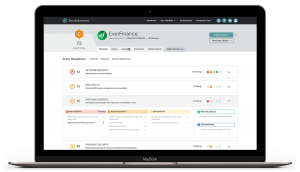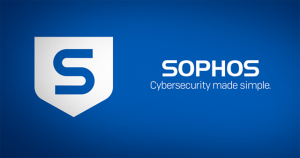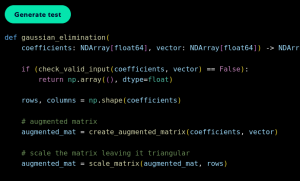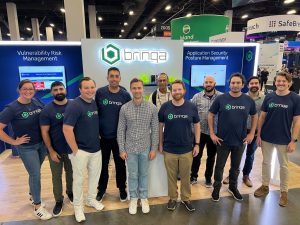Alibaba’s Ecosystem vs. Amazon and Google
![]() Alibaba Group’s chief strategy officer Zeng Ming stated over the weekend that they are expecting to sell more merchandise this year compared to top competitors such as Amazon and eBay.
Alibaba Group’s chief strategy officer Zeng Ming stated over the weekend that they are expecting to sell more merchandise this year compared to top competitors such as Amazon and eBay.
“From their annual reports we did a rough calculation and we were similar last year but we are growing faster than them this year, so this year we are probably larger than them,” Zeng said of Amazon and eBay, America’s top online retailer and auction site.
“The gap is just going to get bigger and bigger when we grow faster,” he said.
The company is also projecting $473 billion in annual transaction value from their Taobao e-commerce units in the next 5 to 7 years. Alibaba is clearly targeting e-commerce competitors such as Amazon and eBay, and they’re clearly on the right track. But Alibaba is taking things a step further, as they already have their own search engine and mobile operating system, which is clearly their effort to take on Google as well.
Let’s take a look at how Alibaba is slowly conquering the interwebs. What makes their e-commerce group tick? How do they function?
Alibaba Group
Alibaba Group is a family of Internet-based businesses that cover business-to-business online marketplaces, retail and payment platforms, shopping search engine and data-centric cloud computing services founded by Jack Ma. The name was inspired by story of Ali Baba and the 40 thieves wherein the main character was a merchant and was popular because of the magic words “open sesame” that opens the door of the cave where the thieves hid their treasures. There are various components that make up this complex group: Alibaba.com, Taobao Marketplace, Tmall.com, eTao, Juhuasuan, AliPay, Alibaba Cloud Computing, and China Yahoo!.
The Ecosystem
.
Alibaba.com is the flagship company of Alibaba, and is the world’s largest online business-to-business trading platform for small businesses. This is where small businesses transact and items sold here are in bulk.
![]() Taobao Marketplace is a consumer-to-consumer trading platform that directly competes with Amazon and eBay as it facilitates small transactions, like buying and or selling hard to find items.
Taobao Marketplace is a consumer-to-consumer trading platform that directly competes with Amazon and eBay as it facilitates small transactions, like buying and or selling hard to find items.
Tmall is a business-to-consumer platform which is better described as an online mall. It is now a major online shopping destination for quality, brand name goods in China.
eTao is the most comprehensive shopping search engine in China that covers product results from most Chinese online shopping platforms. IT is the go-to place for shoppers who needs help in finding items online faster and easier.
Juhuasuan is a comprehensive group shopping platform in China launched by Taobao in 2010, since becoming an independent business in 2011. Juhuasuan aims to aggregate consumer power and offer the widest selection of high-quality merchandise and localized lifestyle services.
AliPay is a third-party online payment platform that provides a payment service called escrow, in which consumers can verify whether they are happy with goods they have bought before releasing money to the seller.
Alibaba Cloud Computing is an advanced, data-centric cloud computing service platform that caters to e-commerce data mining, high-speed massive e-commerce data processing, and as well as data customization.
China Yahoo! was formed via the strategic partnership between Yahoo Inc. and Alibaba Group in 2005 wherein they acquired China Yahoo which is a Chinese portal that focused on essential Internet services such as news, email and search. It is wholly owned by Alibaba Group.
Putting it All Together
![]() All the components of the Alibaba Group work smoothly with one another. Alibaba has offerings for small to medium businesses, as well as those who just want to buy or sell a small amount of items. They also have group offerings, which makes luxury deals affordable for many. Alibaba is an ecosystem wherein each of their components benefit and contribute to the survival of the whole system, and this is what makes their company successful.
All the components of the Alibaba Group work smoothly with one another. Alibaba has offerings for small to medium businesses, as well as those who just want to buy or sell a small amount of items. They also have group offerings, which makes luxury deals affordable for many. Alibaba is an ecosystem wherein each of their components benefit and contribute to the survival of the whole system, and this is what makes their company successful.
How Does Alibaba’s ecosystem compare to Google, Amazon?
.
What Alibaba offers is more on the retail side, catering to businesses who want to connect to other businesses for supplies, or consumers who want to buy or sell personal items. Even their search engine is focused on shopping. Compared to Google, Alibaba seems one-sided, they cater more to the business side of things.
Google is more complex. They started as a search engine that evolved into a huge mass of complex structures. They cater to everything as they offer almost everything. Their search is now mow diverse as you can search by typing on the search bar or search images on file or by taking a photo of it learn more about it. They have an e-mail service, social platform, a web browser, a mobile operating system, a Linux-based operating system, an app store, their own Google-branded devices, and of course they also cater to businesses with their cloud offerings and retail services. But their revenue greatly relies on advertising.
Where Alibaba is rivaling Amazon, beyond the retail outlets, is in cloud-hosting, though Amazon’s managed to create an extensive network of offerings and tools in this sector as well, attracting clients beyond e-commerce.
Nevertheless, Alibaba is a force to be reckoned with as Google and Amazon develop their international strategies, but that’s a two-way street Alibaba will have to consider as the global economy gets smaller by the day. Alibaba’s close relationship with the Chinese government is an advantage over Google, though it raises the question of how end-users are treated in terms of limited access to the web or behavior-monitoring.
Two fundamentally different schools of thought, two different ways of going about business, all battling over one ecosystem that spans the globe from the US to China and everywhere in between.
A message from John Furrier, co-founder of SiliconANGLE:
Your vote of support is important to us and it helps us keep the content FREE.
One click below supports our mission to provide free, deep, and relevant content.
Join our community on YouTube
Join the community that includes more than 15,000 #CubeAlumni experts, including Amazon.com CEO Andy Jassy, Dell Technologies founder and CEO Michael Dell, Intel CEO Pat Gelsinger, and many more luminaries and experts.
THANK YOU









